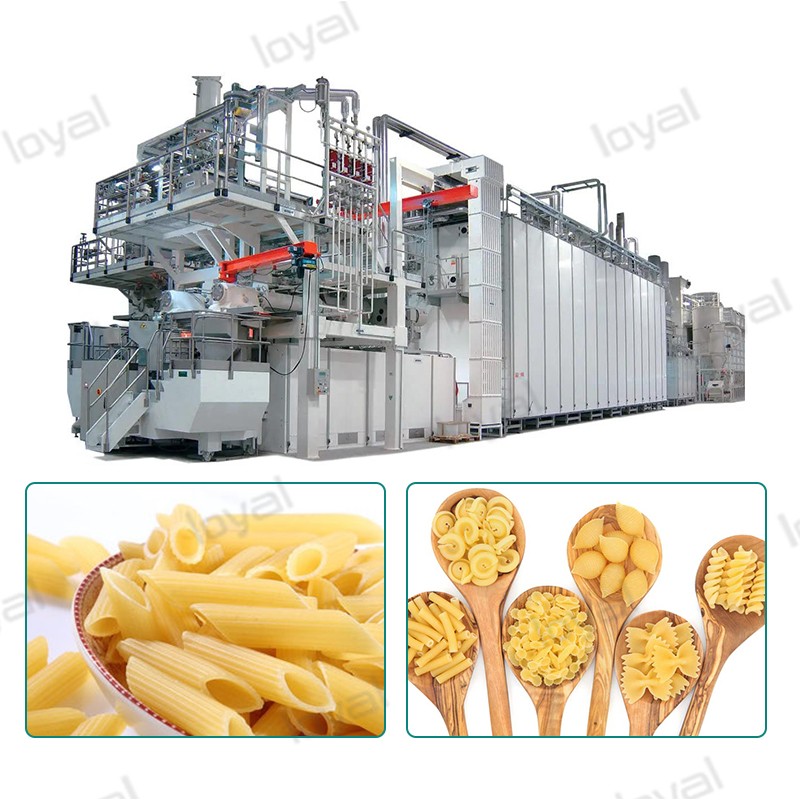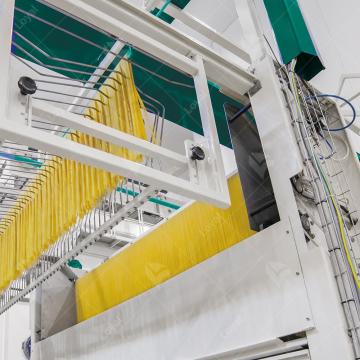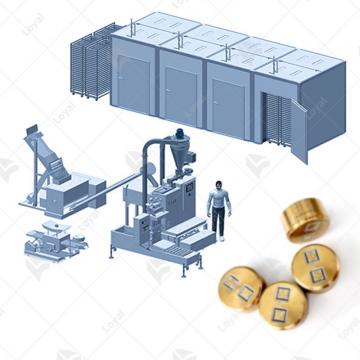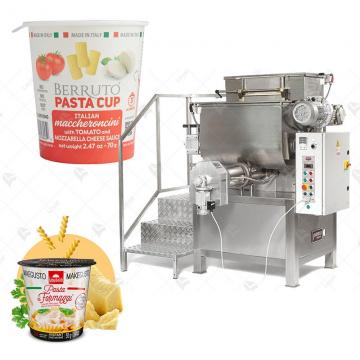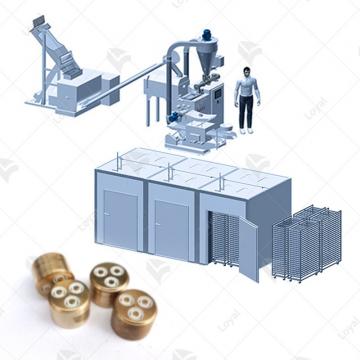Elevate Production Efficiency with Fully Automatic Pasta Manufacturing Equipment
Elevate Production Efficiency with Fully Automatic Pasta Manufacturing Equipment
Introduction
Shandong Loyal Industrial Co., Ltd. has incorporated advanced technologies from Tecalit and FAVA in the production of its macaroni.In the dynamic landscape of pasta manufacturing, the need for elevated production efficiency has become increasingly imperative. As the demand for high-quality pasta continues to rise, manufacturers seek innovative solutions to streamline operations and enhance overall efficiency. In this context, the adoption of fully automatic pasta manufacturing equipment emerges as a transformative approach, promising unparalleled improvements in production output and operational excellence.
Fully Automatic Pasta Manufacturing Equipment
Fully automatic pasta manufacturing equipment represents a paradigm shift in the industry, characterized by the comprehensive automation of production processes. From ingredient mixing to shaping and packaging, these systems integrate cutting-edge technologies to ensure a seamless and efficient workflow.
The deployment of fully automatic systems brings about a transformative impact on both efficiency and production output. With precise control over every stage of pasta manufacturing, these systems minimize human intervention, reduce production times, and significantly increase the overall efficiency of the process. Manufacturers can achieve higher production volumes without compromising on quality.

Key Features of Fully Automatic Systems
The key features of fully automatic pasta manufacturing equipment include precision and speed in every aspect of the production cycle. Automated systems ensure accurate measurement of ingredients, consistent pasta shaping, and rapid processing, contributing to a significant reduction in production time.
These systems leverage smart technologies such as artificial intelligence and machine learning to optimize production parameters. Advanced sensors and control mechanisms enable real-time adjustments, ensuring optimal results in terms of pasta quality, uniformity, and energy utilization.
Streamlining Operations for Maximum Efficiency
Fully automated pasta manufacturing equipment streamlines operations by eliminating bottlenecks and inefficiencies associated with manual processes. The seamless integration of various components results in a more synchronized and efficient production line. This leads to improved resource utilization, reduced waste, and enhanced overall operational excellence.
Manufacturers adopting fully automated systems witness measurable improvements in production efficiency. The reduction in human errors, consistent product quality, and faster production cycles contribute to a significant increase in overall efficiency. This not only meets the growing market demands but also positions manufacturers as industry leaders.
Technological Marvels: Innovations in Pasta Manufacturing Equipment
The continuous evolution of automation technologies plays a pivotal role in shaping the landscape of pasta manufacturing. Innovations such as robotic arms for precise handling, advanced sensors for quality control, and intelligent control systems contribute to the efficiency and reliability of fully automated equipment.
Manufacturers are witnessing a wave of innovations aligned with elevating production efficiency. From intelligent conveyor systems to adaptive control algorithms, these innovations address specific challenges in pasta manufacturing, ensuring that the equipment operates at peak efficiency under varying conditions.

Case Studies: Success Stories of Elevated Efficiency
Several pasta manufacturers have embraced fully automated equipment, leading to remarkable success stories. Companies adopting these systems experience enhanced production capacity, reduced operational costs, and a competitive edge in the market. Case studies highlight the diverse applications of automation in different manufacturing environments.
The tangible benefits of elevated production efficiency are evident in increased output, improved product quality, and streamlined logistics. These achievements translate into enhanced profitability and market competitiveness for pasta manufacturers who have made the strategic decision to invest in fully automatic equipment.
Future Horizons: Emerging Trends in Pasta Manufacturing Technology
The future of pasta manufacturing technology holds exciting prospects. Anticipated developments include further integration of artificial intelligence for predictive maintenance, enhanced connectivity for remote monitoring, and the incorporation of sustainability-focused features to align with evolving industry standards.
The pasta manufacturing industry is experiencing an ongoing evolution of technological innovations. Manufacturers are keen on staying at the forefront by adopting emerging technologies, ensuring that their production processes remain efficient, sustainable, and adaptive to changing market demands.
Conclusion
In conclusion, the journey to elevate production efficiency with fully automatic pasta manufacturing equipment signifies a transformative era in the industry. The integration of advanced technologies, precision engineering, and smart automation not only meets the demands of the current market but also positions manufacturers for sustained success in the future. As pasta manufacturers embrace these innovations, they are guided towards a future characterized by enhanced efficiency, streamlined operations, and a competitive edge in the dynamic landscape of pasta production.

Frequently Asked Questions about Pasta Manufacturing Equipment
1. What is fully automated pasta manufacturing equipment?
Answer: Fully automated pasta manufacturing equipment refers to advanced systems that employ cutting-edge technologies to automate the entire pasta production process. From ingredient mixing to shaping and packaging, these systems minimize human intervention, leading to increased efficiency, precision, and production output.
2. How does fully automated equipment contribute to elevated production efficiency?
Answer: Fully automated equipment contributes to elevated production efficiency by streamlining operations, reducing production times, and minimizing human errors. The precision and speed of automated systems result in consistent product quality, higher output, and overall operational excellence.
3. What key features define fully automated pasta manufacturing systems?
Answer: Key features include precision and speed in pasta manufacturing, integration of smart technologies such as AI and machine learning, and real-time adjustments for optimal results. These systems are designed to enhance efficiency, sustainability, and quality throughout the production cycle.
4. How can manufacturers stay at the forefront of technological advancements?
Answer: Manufacturers can stay at the forefront by adopting emerging technologies, staying informed about industry trends, and investing in research and development. Continuous learning, collaboration with technology providers, and a commitment to sustainability contribute to remaining competitive in the dynamic landscape of pasta production.

